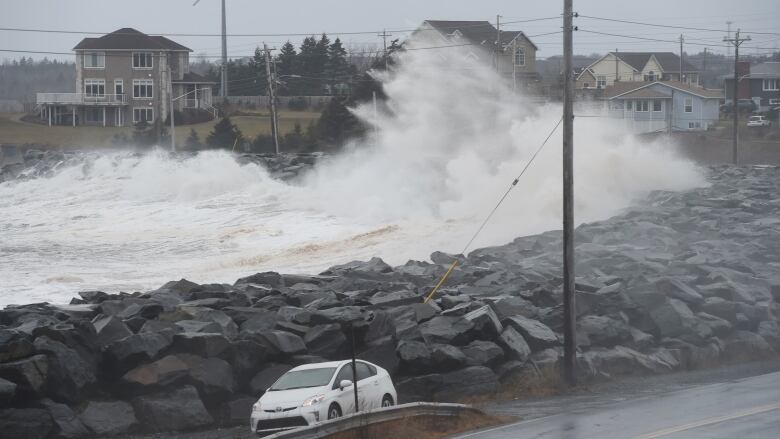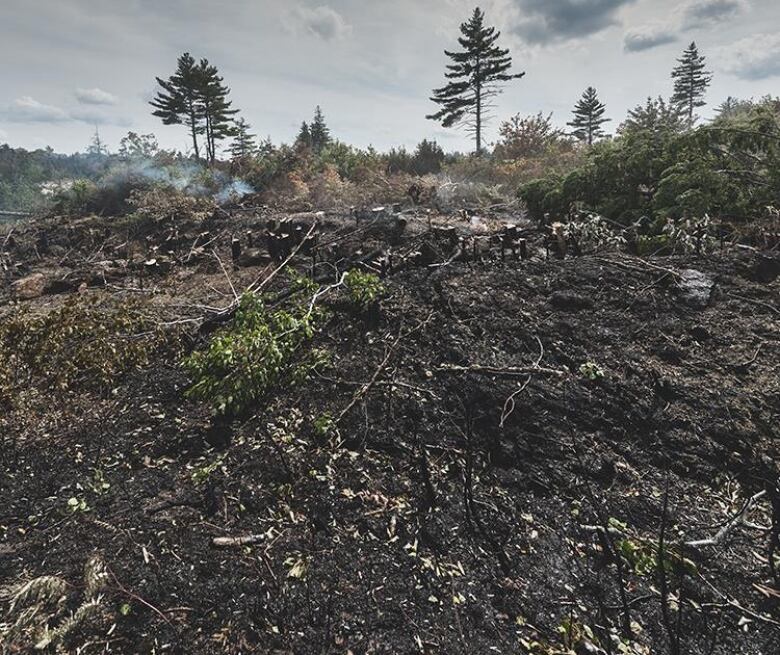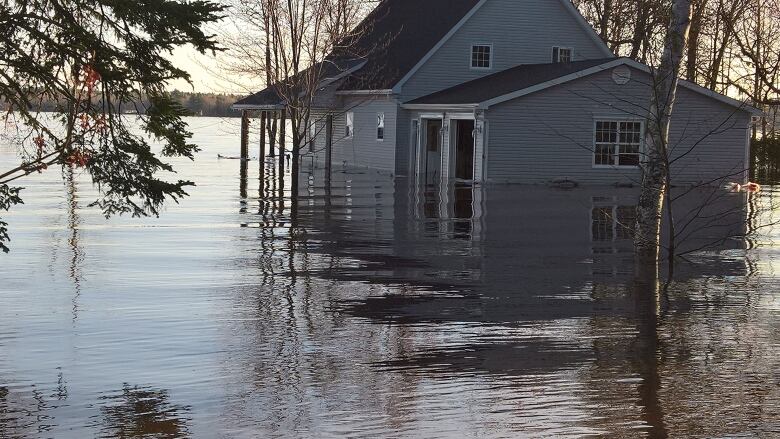Extreme weather causing changes in Nova Scotia right now, says federal climatologist
Not just happening 'in Bangladesh or Botswana or Bolivia it's happening in Bridgewater'

Atlantic Canadais seeing the dramatic effects of climate change due to rising ocean temperatures and it's going to get worse without immediate intervention, says a seniorclimatologist with Environment Canada.
"We're already seeing it here in Halifax, with the storm surges and coastal flooding and erosion. It's not something that we can imagine, we are witnessing it right now and scientists are actually measuring it. It's fairly alarming," Dave Phillips told CBC's Information Morningon Thursday.
"We're not having to wait for our grandchildren to see this, it's happening right now."
Phillips is on a cross-country tour to talk about climate change and its dramatic effect on the weather, calling the battle to halt global warming "World War III."
He doesn't apologize for the military terminology.
"We're fighting the same enemy ... it is the runaway kind of changes in terms of our climate, wild weather. We all created part of the problem and we all have to be part of the solution," he said.
"It's not just something that's happening in Canada or in Bangladesh or Botswana or Bolivia it's happening in Bridgewater. It really is a global issue."

Speaking Wednesday night in Halifax, Phillips said he is heartened by the informed comments from the audience about the issue.
"You know you look at the polling, Canadians put climate change and the threat of climate change up there with housing and the economy, and I think they're eager to do something about it," he said.
"And I think everybody has to be engaged. You can't expect the federal government or provincial government to bail you out every time Mother Nature misbehaves."

For example, he said people here arequestioning why government is still approving coastal development applications close to shorelines,and concluding that officials needto rethink those decisions.
He said businesses also need to use that information going forward.
"The climate is going to affect youor your operations, your strategy. It's a different world and our climate is changing so dramatically and particularly here in Atlantic Canada."
Phillips doesn't believe climate change can be stopped completely, but there are indicationscommunities are prepared to take steps to do things differentlyto cushion the effects.
"We can make it less impactful than it has [been] by proper planning and preparing, and hey I'm optimistic, I don't think the world's going to end in 2056 because you're going to see the way out."
With files from Information Morning Halifax












_(720p).jpg)


 OFFICIAL HD MUSIC VIDEO.jpg)
.jpg)



























































































